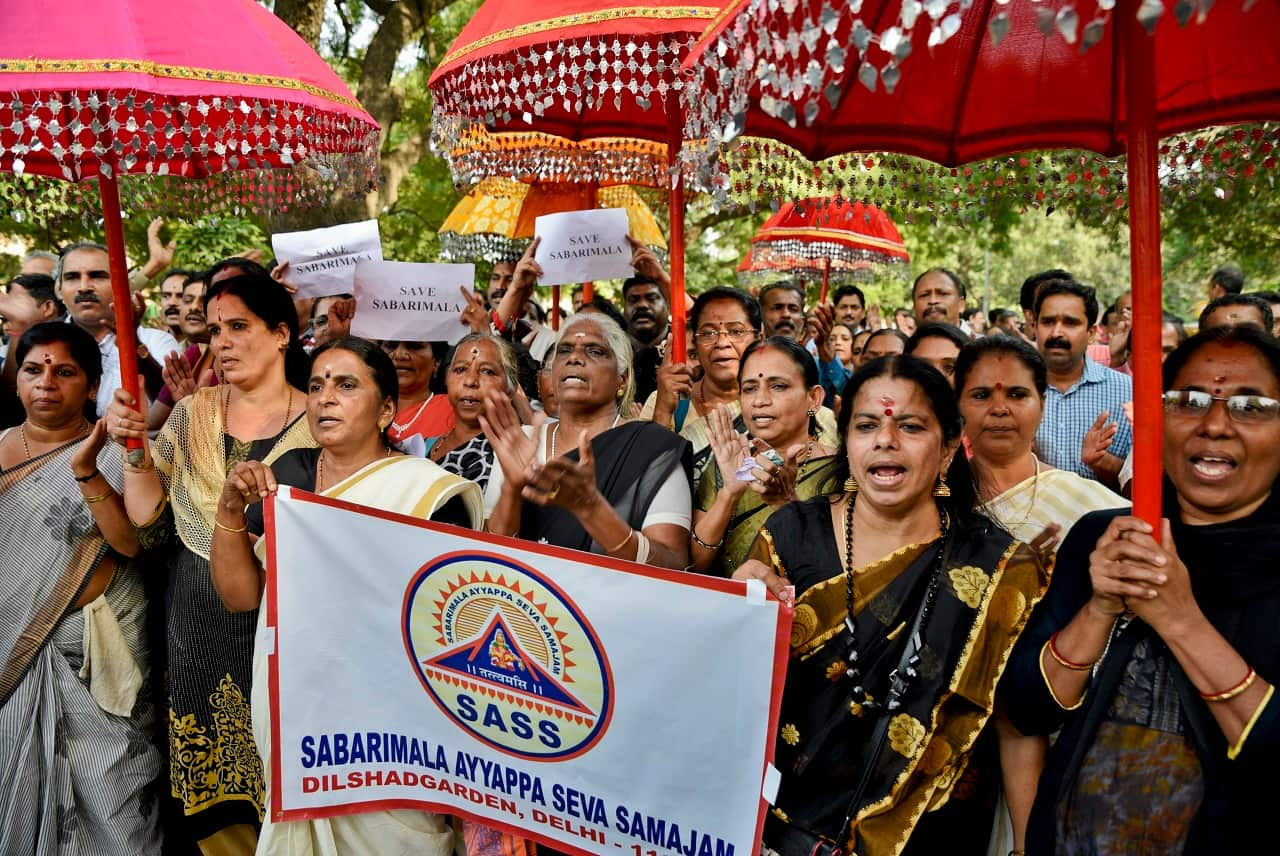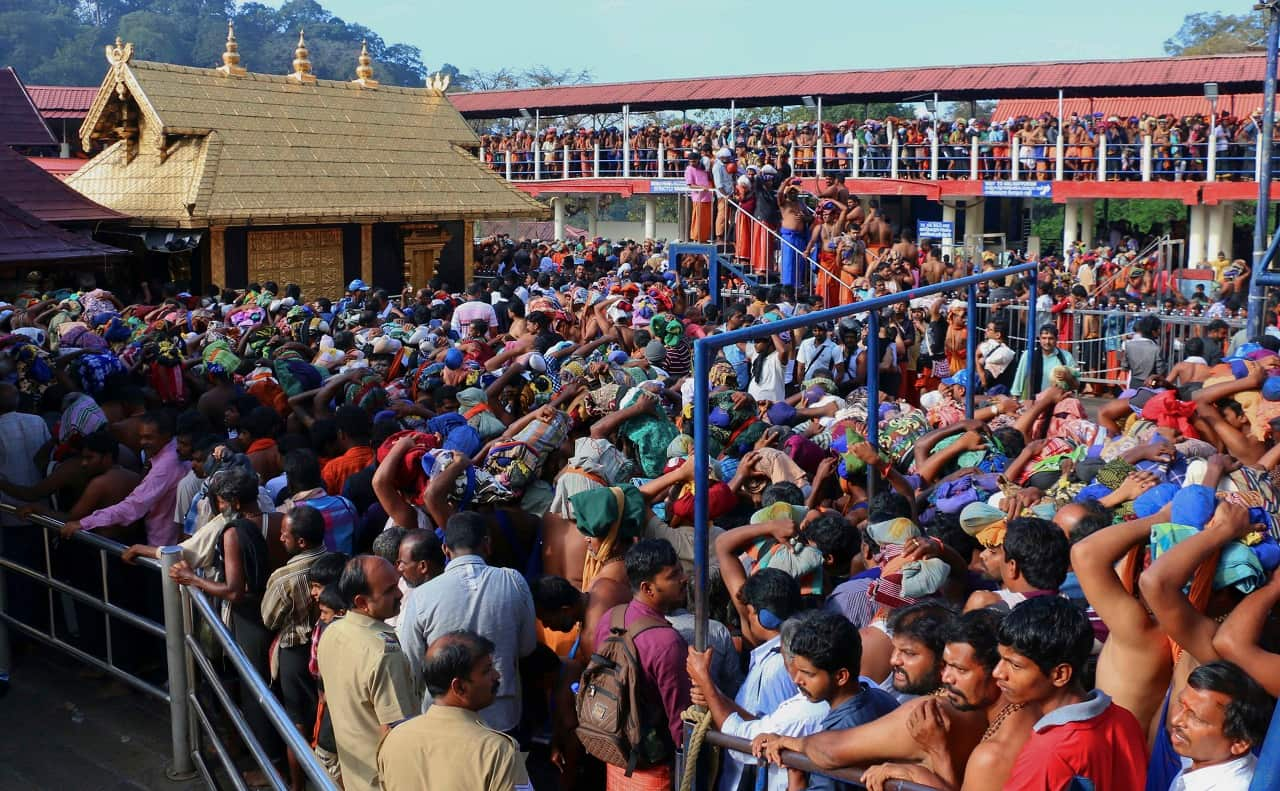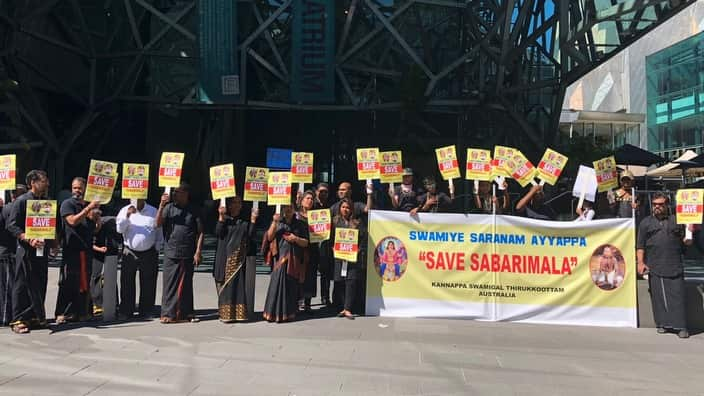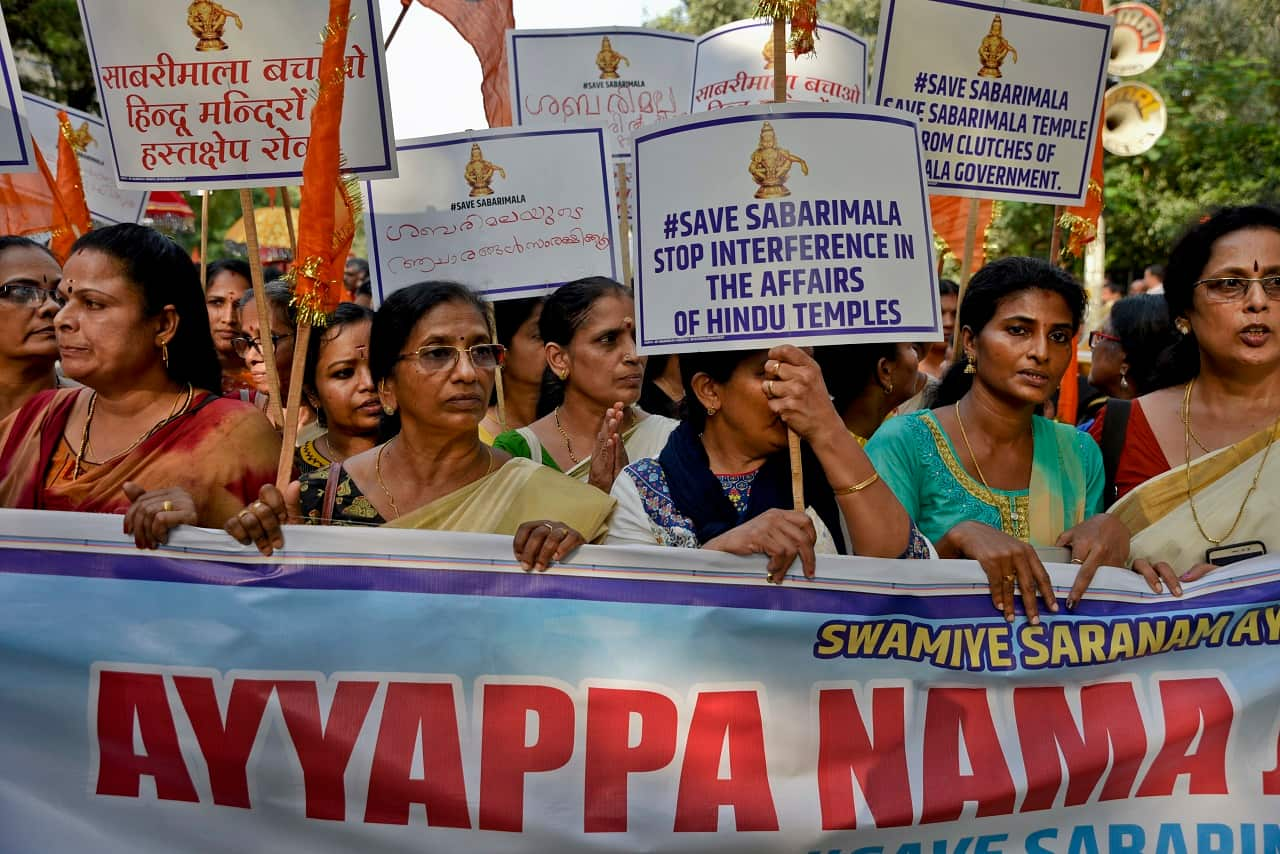The government of the state of Kerala is bracing for a showdown over the decision by the Supreme Court to allow women 'of menstruating age' to visit the Sabarimala hill temple, when it re-opens on October 17th.
The historic Sabarimala temple had previously barred women of menstruating age from entering the temple.
A five-judge constitutional bench of India's Supreme Court lifted the “age-old” ban last month which restricted women between ages 10 and 50 from visiting the temple. It ruled that holding that equality is supreme irrespective of age and gender.
“We are ready to wait, not till 50, but till we turn 60 before going to Sabarimala temple”, said one young woman who formed a part of a huge protest against the Court's decision in the southern Indian state. More than 20,000 devout Hindus, mostly women, gathered at Pandalam, in southern Kerala, outside the headquarters of the former royal family which once governed the temple.
More than 20,000 devout Hindus, mostly women, gathered at Pandalam, in southern Kerala, outside the headquarters of the former royal family which once governed the temple.

India's Supreme Court said that equality is supreme irrespective of age and gender. Source: AAP
The famous Sabarimala shrine attracts millions of people every year from around the country and overseas.
The temple’s presiding deity Lord Ayyappa is considered to be a celibate and devotees believe that women who are of reproductive age visiting the temple will affect it. As the tradition calls for 41-day long fasting, celibacy and cleanliness before the pilgrimage to Sabarimala, it is believed that women in the menstrual age group cannot follow that.
A group of five young women lawyers who were from the Indian Young Lawyers Association approached the Supreme Court in 2006 challenging the ban, citing it amounted to discrimination against women.
The Tantri (priest) of the temple Kandaru Mohanararu told the media that “the Supreme Court verdict is wrong. It is a violation of customs and traditions of the Lord Ayyappa shrine.” However, the state government said that immediate steps would be taken to ensure safety and facilities for women who want to visit the temple.
However, the state government said that immediate steps would be taken to ensure safety and facilities for women who want to visit the temple.

Hindu worshippers queue during a pilgrimage at the Sabarimala temple in the southern Indian state of Kerala. December 2015 Source: AP
State Chief Minister Pinarayi Vijayan has categorically said that “women who want to go to Sabarimala cannot be stopped”.
The state administration and the Travancore Devaswom Board – a state-funded body which governs the temple – have made it clear that they would not file a review petition in the Supreme Court questioning the judgement - a position that has irked the sentiments of thousands of believers and political parties in opposition.
Protests in Australia
While thousands of believers took it to streets in various parts of Kerala forming “Naama japa yathras” (prayers marches), devout Hindus outside the state and the country have also taken issue.
Dozens from the Sri Lankan Tamil community gathered at Melbourne’s Federation Square on Sunday morning holding placards that read “Save Sabarimala”. “For the past hundreds of years, the Sabarimala temple has followed certain traditions and customs. We are here to support those traditions and customs”, a woman clad in black dress – the traditional colour of devotees’ attire, told SBS Malayalam.
“For the past hundreds of years, the Sabarimala temple has followed certain traditions and customs. We are here to support those traditions and customs”, a woman clad in black dress – the traditional colour of devotees’ attire, told SBS Malayalam.

Protesters gathered in Melbourne's Federation Square demanding reversal of the Indian Supreme Court judgement Source: SBS Malayalam/Delys Paul
“We want the verdict to change. We want Sabarimala to stay the same. We don’t want it to be changed.”
Asked whether it wouldn’t amount to discrimination against women, a male devotee said, “My wife never said why we can’t come (to Sabarimala). No, she will not come. When the message (about the judgement) came, she was the first one to say it was not correct.”
Another devotee in Perth, Bency Abhilash, pointed out that courts should not intervene or decide in the matters of belief.
“It is a personal right. I have to right to decide what to believe and what traditions to follow. A judge or judicial system could not take a call on that. It is a part of our tradition.” However, many in Australia have supported the decision.
However, many in Australia have supported the decision.

Hundreds of protestors gathered near the Indian Parliament Sunday demanding that the customs and rituals of the temple should not be changed. Source: AAP
Melbourne based Benila Ambika told SBS Malayalam that she supports the judgement “wholeheartedly”.
“Every religion, be it Hindu, Christian or Islam, considers women as second-class citizens. We were never given priority. So, it is a proper judgement, overturning the superstitions that have existed for centuries.”
Ms Ambika added that Hindu women should accept this judgement as progressive.
Melbourne based Girish Avanoor who claims to have visited the temple 14 times welcomed the change.
“Women have the right to go to Sabarimala. Even men are not following the 41-day fasting now, so it won’t be an issue for women too,” he said.

